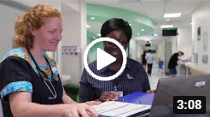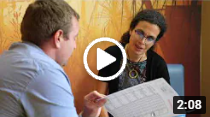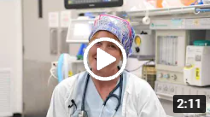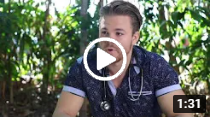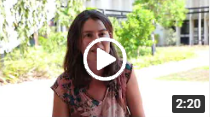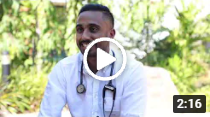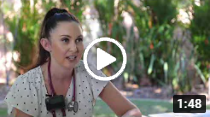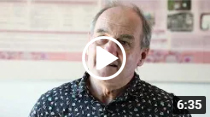Top End medical officer positions
Working for the Top End Health Service
Come for the medicine, stay for the lifestyle. Be the difference.
What we can offer you:
- tropical medicine and infectious diseases such as melioidosis
- working within an extremely experienced multidisciplinary primary health care team
- exposure to different medical conditions
- working in an Indigenous health environment
- traveling to remote communities to provide support
- living and working in remote community settings and working Monday to Friday
- support in a network that focuses on education.
What you can do:
- engage with the community and make a difference
- explore the beauty the Top End of Australia offers: fishing, camping, trekking, hiking, horse riding, cycling, swimming, diving, world class national parks and experiencing our unique aboriginal culture that is 22,000 years old.
Watch these videos to hear from interns, resident medical officers, registrars and specialists who share their stories about the unique work and lifestyle in the Top End.
TEHS overview
Top End Health Service offers a broad range of services in all specialty areas to the population of the Top End, including:
- the Royal Darwin and Palmerston Hospitals (RDPH)
- Katherine Hospital
- Gove District Hospital
- Top End Mental Health and Alcohol and Other Drugs Service
- Primary Health Care and numerous remote health clinics.
Aboriginal people make up 30 per cent of Territory's population and yet currently reflect 70 per cent of consumers in the NT health system. This presents innovative opportunities around the delivery of integrated and consumer-centred care that is accessible, effective, culturally safe and responsive.
Aboriginal people experience some of the poorest health outcomes of all Australians exacerbated by social factors such as remote isolation. Improving Aboriginal health and wellbeing is a complex but rewarding challenge. In committing to making a difference it is important to acknowledge and respects the interests of Aboriginal people as Australia's first peoples recognising their strong connection to land and cultural. This acknowledgement and respect is essential as a foundation to achieve equitable health and wellbeing outcomes and all medical staff have an opportunity to learn and experience in this unique environment.
Top End Health Service offers a broad range of services in all specialty areas to the population of the Top End. You will get to engage with the community, share the challenges, gain knowledge and skills you won’t see anywhere else and you will see the difference you can make.
We have hospitals in Darwin, Palmerston, Katherine and Gove and rural health clinics in remote locations across the Top End.
- You can choose to work in an urban, rural, remote location or experience a bit of it all.
- No matter where you choose to go you will gain expertise and experience that will benefit you throughout your career.
We have world renown specialists in tropical medicine based in the Top End who are here to share their knowledge and provide teaching opportunities at our weekly teaching sessions including Grand Rounds, Intern/JMO/Registrar teaching, Journal club, Division teaching/grand rounds.
Our vision is to be recognised locally, nationally and internationally as a centre of excellence for the provision of high quality healthcare to our community and fulfill our role as the National Critical Care and Trauma Response Centre.
There is a strong commitment to work with junior medical officers on their career pathways with an aim to provide appropriate clinical terms and experiences to achieve their chosen vocational training.
The Royal Darwin Hospital shares its campus with Menzies School of Health Research and Flinders NT Medical School, offering the opportunity for our staff to engage in research and teaching opportunities.
Living in the Top End
The Top End region includes:
- Darwin
- Katherine
- Nhulunbuy (Gove)
- Jabiru
- East and West Arnhem and many more discrete Aboriginal communities.
For more information about population, go to the Northern Territory Economy website.
The Top End is home to Darwin and home to its traditional owners, the Larrakia people. It is a beautiful tropical city that is arguably one of Australia’s if not the world’s most multicultural cities with a population consisting of more than 60 nationalities and a unique lifestyle that the locals will tell you is second to none.
The Top End climate is tropical and is in the monsoon belt, where we experience two seasons.
- the wet season, where it is hot and wet with amazing tropical storms
- the dry season, where the temperatures drop to between 20 to 30 degrees celsius. Yes, leave your winter woollies behind, although the locals will tell you it gets cold.
During the wet and the dry seasons you get to spend time exploring our unique country and experience everything the Top End has to offer. Our relaxed lifestyle allows you to enjoy a work-life balance, engage in community activities, sport, culture, social events, festivals and markets. Our market food is so authentic you’ll think you’re in Asia.
We are the gateway to Asia with:
- Timor Leste a short one and a half hours
- Bali two and a half hours
- Singapore four and a half hours flight away.
For more information visit:
- Northern Territory Top End website
- Tourism Top End website
- Tourism Top End Facebook page
Royal Darwin Hospital facilities
Royal Darwin Hospital (RDH) is a university teaching hospital with 370 beds and provides a broad range of services in all specialty areas to the Darwin urban population as well as serving as a referral centre to the whole Top End of the Northern Territory (NT).
The population serviced by the hospital is about 175,000 and many of our patients are from remote communities. This adds to the challenges, unique learning opportunities and ability to make a difference in the health outcomes for our community.
Junior medical officer training
RDH is accredited by the Northern Territory Postgraduate Medical Council on behalf of the Medical Board of the Northern Territory for intern and junior medical officer training, and has an active clinical training program for pre-vocational trainees and registrars.
The hospital has a strong commitment to work with junior medical officers on their career pathways with an aim to provide appropriate clinical terms and experiences to achieve their chosen vocational training.
The hospital is accredited to provide supervision and training for International Medical Graduates. There is a strong clinical focus on Indigenous health and infectious diseases.
Accommodation
Furnished accommodation is available on the Royal Darwin Hospital campus for periods up to 12 weeks and is allocated according to determined criteria and availability.
Accommodation available is in the form of studios, one to two bedroom units, and three to four bedroom houses.
The recreational facilities available on the RDH campus include a half Olympic swimming pool, squash and tennis courts, and a gymnasium.
Palmerston Hospital facilities
Palmerston Regional Hospital (PRH) has 72 overnight beds and provides a broad range of services including:
- sub-acute services to the Palmerston population.
- These have been designed to be complementary and integrated with clinical services at Royal Darwin Hospital, and build greater capacity as well as improving the NT's health care system.
- Royal Darwin Hospital will remain the tertiary referral hospital for the Top End. It will continue to specialise in major emergency and complex trauma care for adults, babies and children.
- access to emergency healthcare 24 hours a day, seven days a week
- planned day and elective surgery
- general medical inpatient care
- access to pre and post-natal maternity services closer to home, including pregnancy check-ups, monitoring, post-natal follow-up care and breastfeeding advice
- outpatient clinics and telehealth care for rural patients
- intensive rehabilitation services and treatment with a gym and hydrotherapy pool
- two surgical theatres and two procedure rooms
- comprehensive Geriatric Evaluation and Management ward
Katherine Hospital facilities
The Katherine Hospital has 60 overnight beds and provides a broad range of services in all specialty areas to the Katherine Region population as well as serving as a referral centre for remote areas of the Top End of the Northern Territory.
The key range of health services provided across the Katherine Hospital encompass:
- Emergency medicine services including an emergency department
- General medicine and surgery services including an adult medical surgical ward with 1 designated rehabilitation bed and 1 palliative care bed
- Maternal and child health services including a pediatric ward combined with a day stay unit
- Integrated community and hospital services including tele-health services
- Clinical support services including allied health, anesthetics, radiology and sonography services, pathology, specialist services including Specialist Outreach Northern Territory (SONT) surgical and outpatient consultations, mortuary services, rehabilitation step down unit, mandatory alcohol assessment unit, Indigenous and Remote Eye Health Service (IRIS) eye program, and operating suite/theatres
Email MedicalAdminKH@nt.gov.au or call the Director of Medical Services on (08) 8973 9211.
Gove Hospital facilities
Gove District Hospital (GDH) is located in the town of Nhulunbuy on the Gove Peninsula. GDH is a 30 bed hospital and provides a broad range of medical, surgical, emergency, paediatric, respite and maternity services to the East Arnhem Region population. It is the referral centre for 15 remote community clinics that refer patients to hospital for inpatient, outpatient and specialist care.
GDH offers a number of non-admitted services, including Ophthalmology, Cardiology and Gynaecological services.
The key range of health services provided across the Gove District Hospital encompasses:
- 24 hour accident and emergency care
- general surgical, medical and paediatric care
- two respite places and two emergency respite places
- elective and 24 hour emergency surgery
- maternity services including caesarean capability
- visiting specialists care
- 24 hour medical imaging (on call service after hours)
- pharmacy and pathology
- support services including engineering, catering, housekeeping and laundry, stores, mortuary and cyclone shelter.
Primary health care in TEHS
The Primary Health Care team provides preventative health checks and chronic disease reviews, immunisations, health promotion and education, palliative care within the home environment, including an after-hours service for palliative care clients.
Primary Health Centres are located across the Top End and include Bathurst Island, Belyuen and Milikapiti, Pirlangimpi, Julanimawu on the Tiwi Islands, Adelaide River, Batchelor, Daly River, Palumpa, Wadeye, Jabiru, Minjilang, Warruwi, Gunbalanya Maningrida and urban centres in Darwin.
The Primary Health Centres provide a level of service which is linked to the size and needs of the communities. Some have a resident General Practitioner and some have a visiting service.
The Primary Health Centres provide 24 hours seven day a week acute/emergency response through health staff on call and primary health care to the community: antenatal care; growth assessment and action (GAA) program for infants and children under five; childhood and adult immunisation; healthy school aged kids program; preventable chronic disease (PCD) program; well women’s and well men’s screening; infectious and communicable disease prevention and control.
Primary Health Care Medical Services provide a generous relocation package depending on the period of contracts secured. This will be discussed at time of recruitment. Accommodation is provided in the Remote Health Community along with power and internet.
PHC Urban Services
The Health Centres provide a five day a week Primary Health Care service including the provision of Child Health and Primary Care. Child Health includes health checks, immunisations and ongoing advice through parenting workshops, the services provides support to parents and their families from birth to four years of age.
The Primary Health Care team provides wellness checks for adults, immunisations, health promotion and education, wound care/support, palliative care within the home environment, including an after-hours service for palliative care clients.
The Urban Services includes health services to the Correctional Precinct.
PHC Top End Central
This area includes clinics in Bathurst Island, Belyuen and Milikapiti, Pirlangimpi, Julanimawu on the Tiwi Islands.
The Health Centres provide a level of service which is linked to the size and needs of the communities. Some have a resident General Practitioner and some have a visiting service. They may include 24 hours, seven day a week acute/emergency response through health staff on call and primary health care to the community:
- antenatal care
- Healthy Under five Kids Program
- childhood and adult immunisation
- healthy school aged kids program
- preventable chronic disease program
- well women’s and well men’s screening
- infectious and communicable disease prevention and control.
PHC Top End West
This area includes clinics in Adelaide River, Batchelor, Daly River, Palumpa, and Wadeye.
The Health Centres provide a level of service which is linked to the size and needs of the communities. Some have a resident General Practitioner and some have a visiting service. They may include 24 hour seven day a week acute/emergency response through health staff on call and primary health care to the community:
- antenatal care
- Healthy Under five Kids Program
- childhood and adult immunisation
- healthy school aged kids program
- preventable chronic disease (PCD) program
- well women’s and well men’s screening
- infectious and communicable disease prevention and control.
PHC Top End West Arnhem/Maningrida-Darwin
This area includes clinics in Jabiru, Minjalang, Warruwi, Gunbalanya and Maningrida.
The Health Centres provide a level of service which is linked to the size and needs of the communities. Some have a resident General Practitioner and some have a visiting service. They may include 24 hours seven day a week acute/emergency response through health staff on call and primary health care to the community:
- antenatal care
- growth assessment and action (GAA) program for infants and children under five
- childhood and adult immunisation
- healthy school aged kids program
- preventable chronic disease (PCD) program
- well women’s and well men’s screening
- infectious and communicable disease prevention and control.
For further information, email MedicalRecruitmentRDH.THS@nt.gov.au.
Print all pages in this section
Give feedback about this page.
Share this page:
URL copied!

